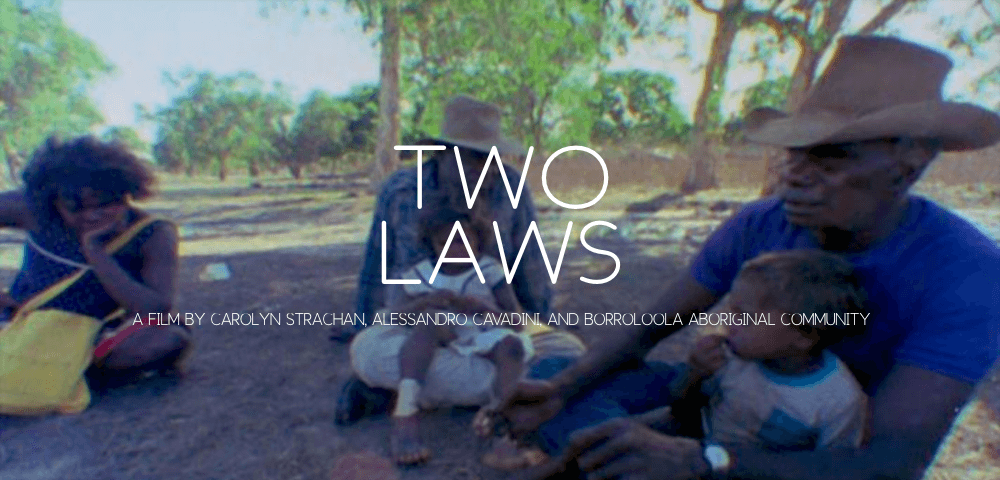
TWO LAWS
dirs. Carolyn Strachan, Alessandro Cavadini, and Borroloola Aboriginal Community, 1981
Australia. 140 mins.
In English, and Aboriginal with English subtitles.
FRIDAY, APRIL 6 – *9:00 PM*
SUNDAY, APRIL 15 – 7:30 PM
WEDNESDAY, APRIL 18 – 6:30 PM (WITH FILMMAKER Q&A! – This screening is $10)
SUNDAY APRIL 29 – 5 PM
ONLINE TICKETS HERE
The Borroloola Aboriginal Community is made up of four language groups from the gulf region of the Northern Territory. The people live within a tribal structure and all decisions concerning this film were made within this structure.
The opening words of TWO LAWS are spoken by Leo Finlay, a prominent member of the Borroloola community:
“I suppose you know these two, Alexander and Caroline. Last year was in Sydney and asked them to come down to make film in Borroloola for our own people. They’re here in Borroloola now and we’re glad that they came to make this film. They been apply to the government to get some money to make this film which was real good. So its our film and we’re going to make really good film out of it.”
TWO LAWS is not a conventional documentary – it comes from a different perspective, from Aboriginal community commitment, and in doing so it also challenges notions of filmmaking practice, of history, of ethnography, of objectivity.
The Aboriginal people of Borroloola have a traumatic history of massacres, institutionalisation and dispossession of their lands. Reflection upon this history is increasingly part of the Borroloola people’s basis for action and the consolidation and definition of aims. The request for this film to be made is part of this process.
The film is divided into four parts but although this arrangement is roughly chronological. TWO LAWS is not a straight linear narrative, nor are its four parts kept entirely distinct from one another: interconnections between past and present are dealt with through an investigation of both history and its construction, storytelling and its processes.
“The way Aboriginal people approach history is very different from the way we see history as located firmly in the past. People talk about history in the present tense, use the first person, employ dialogue, reenact events. In everyday life people tell stories that happened yesterday or happened one hundred years ago.” – Carolyn Strachan and Allesandro Cavadini
“TWO LAWS has scripted moments and re-enactments but is entirely transparent in its presentation; much of it is shot, wide-angle, from a seated position among a circle of people, in visual sync with Indigenous storytelling traditions. I haven’t seen anything like it in honesty of feel or form, though it’s an obvious precursor to the sleeker fictional drama TEN CANOES (Rolf de Heer, 2006).” – Lauren Carroll Harris, Realtime
“So substantial in achievement that it makes breathless praise undignified.” – Meaghan Morris, Financial Review
“No other documentary has come anything like as close to uncovering the richness and the everydayness of modern aboriginal life, without every romanticising it.” – John Hinde, ABC
“A breakthrough of major significance in ethnographic film.” – James Roy McBean, Film Quarterly
Special thanks to Facets Multimedia.
